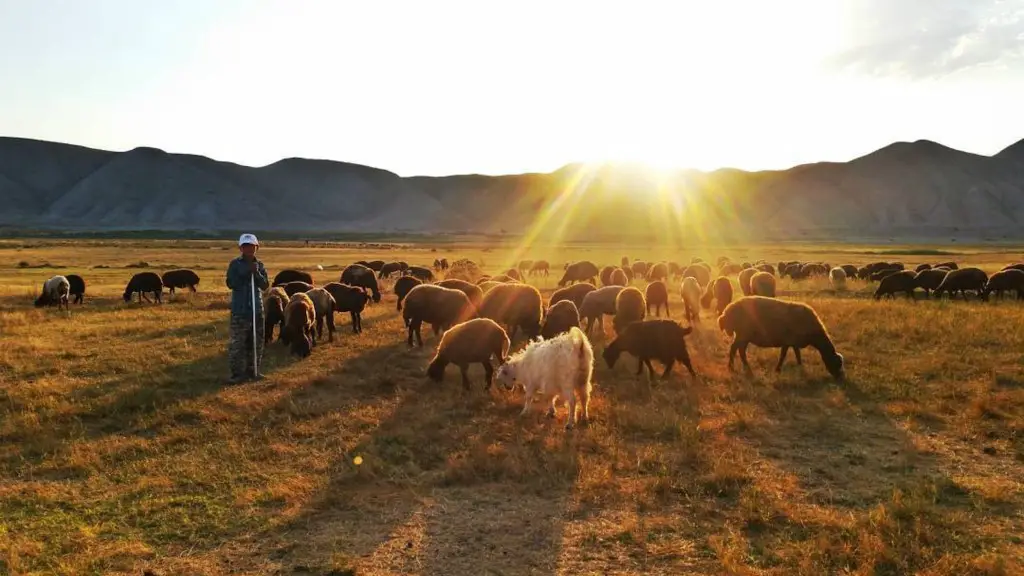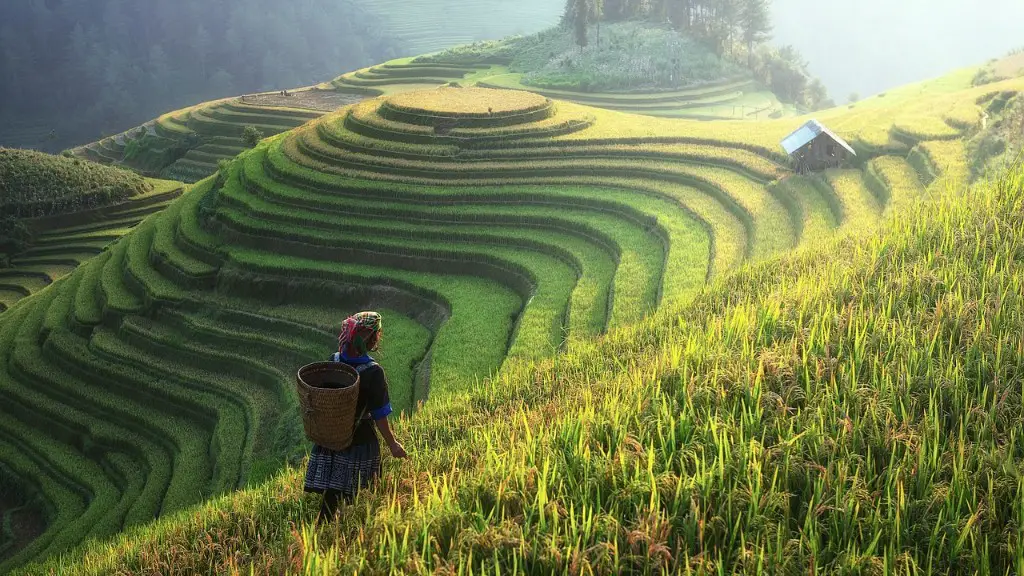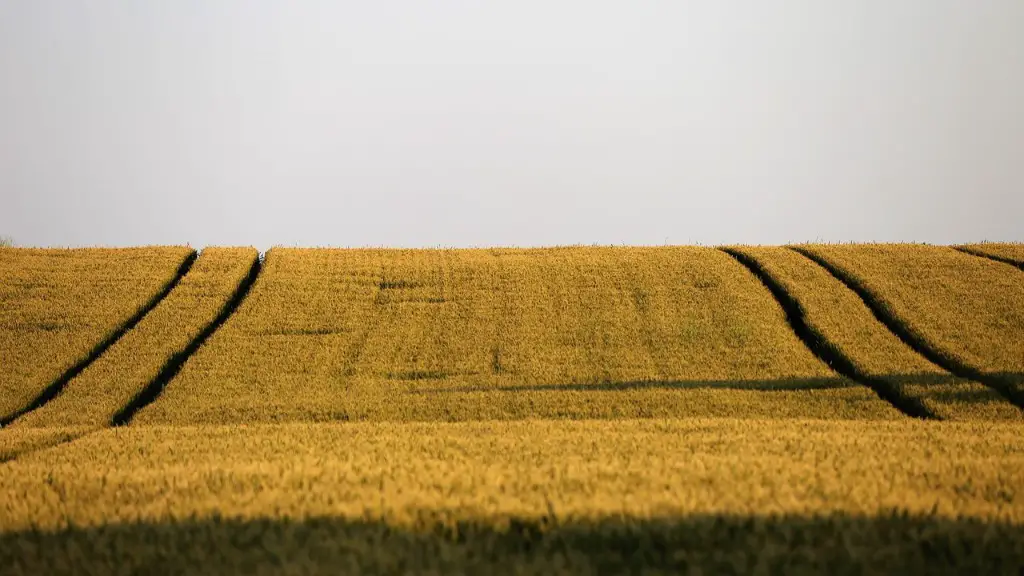Agriculture is an essential part of human life and has a massive impact on the environment. Unfortunately, it is one of the worst polluters in terms of air, water, and soil quality. The rise in agriculture activity has had a detrimental effect on natural ecosystems, leading to deforestation, soil erosion, and loss of biodiversity. Additionally, the use of agrochemicals, such as synthetic fertilizers and pesticides, further exacerbate this pollution of the environment.
As the industrialization of agriculture progresses, the amount and variety of pollutants increase. The main sources of emission are the application of fertilizers, pesticides, and greenhouse gases like carbon dioxide and methane associated with livestock operations. These substances are either directly released into the environment, or enter water and soil resources via run-off.
Fertilizers and pesticides can produce a variety of environmental problems. Fertilizers contain nitrogen, phosphorus, and potassium that can leach into surrounding waters or evaporate into the air. Because of this, you can find elevated levels of nitrogen and phosphorus in surface waters, leading to algal blooms and dead zones where fish cannot survive. Furthermore, the use of pesticides can disrupt food webs, contaminate water, and even cause extinctions in some species.
Deforestation is another major environmental impact from agricultural activities. Trees are cut down to make room for raising livestock, growing crops, and making way for more industrialized agricultural practices. This has a ripple effect, leading to increased soil erosion, and in some cases desertification.
Agriculture also produces a large amount of greenhouse gases, especially carbon dioxide, that contribute to global warming and climate change. Large-scale livestock farming produces large amounts of methane, which can linger in the atmosphere for a long time and trap more heat. This is part of the reason why animal agriculture is one of the leading causes of the global climate crisis.
Finally, the large-scale and often illegal use of agrochemicals can be directly harmful to local populations. The overuse of pesticides and insecticides can cause extensive damage to human health in the form of endocrine disruptions, reproductive damage, and cancer.
Impact on Air Quality
Agriculture is linked to poor air quality due to the high amounts of pollutants released into the air, such as ammonia, nitrous oxides, and particulate matter. These pollutants are emitted from animal production and crop cultivation processes, and can drift hundreds of kilometers, leading to widespread health issues. Ammonia gas is especially dangerous, as it is corrosive, irritating to the eyes and respiratory system, and can be linked to asthma and other respiratory issues. Additionally, the burning of fossil fuels used in agricultural production releases carbon dioxide and other greenhouse gases, which are known to contribute to climate change by trapping heat in the atmosphere.
Impact on Water Quality
Agriculture has multiple sources of water pollution, stemming from runoff, crop irrigation, and animal waste. Runoff can occur after a heavy storm, causing contaminants like fertilizers and pesticides to enter waterways where they can have irreversible effects on aquatic life. Additionally, nitrates and phosphates from fertilizers can lead to algal blooms in rivers and lakes, creating dead zones without any oxygen. Livestock production also leads to a large amount of water pollution, as animal waste can contain pathogens like E.coli that can be hazardous to human health.
Impact on Soil Quality
Soil quality is often degraded by unsustainable agricultural practices, such as over-cultivation and loss of organic matter. Over-cultivation occurs when farmers till land too often or too deeply, causing the soil to become compacted and lose its nutrients. Without proper replenishment of organic matter, such as composted manure and composted grass clippings, soils can become depleted and lack necessary nutrients. This can lead to crop yields that are too low to sustain farmers, leading to further environmental destruction in the long run.
Impact on Biodiversity
Agriculture has had a negative impact on biodiversity due to its overuse of land, destruction of natural habitats, and use of pesticides that can disrupt food chains. The destruction of natural habitats takes away resources used by wildlife, while the use of pesticides can have a direct effect on many wildlife species. Finally, the monoculture of many farms reduces biodiversity by replacing diverse ecosystems with single-crop fields. This lack of diversity can lead to vulnerable species becoming even more vulnerable.
Impacts of Agricultural Development
Agricultural development not only has a negative impact on the environment, but has also been linked to numerous health issues. Many agrochemicals have been linked to kidney disease, respiratory issues, birth defects, and even cancer. Additionally, monoculture farming and crop rotations can leave soil vulnerable to erosion, leading to dust storms that can bring a host of health issues. Finally, the destruction of traditional farming methods in many cases means loss of traditional knowledge that has been passed down from generation to generation, further leading to the erosion of culture.
Impacts on Rural Communities
The effects of industrial agriculture in rural communities can be devastating. The large-scale mechanization of farms can lead to displacement of smallholder farmers, as they can’t compete with the more efficient large-scale operations. Additionally, rural communities can be adversely impacted by soil erosion, water pollution, and loss of traditional knowledge. All of these things can have a profound effect on the quality of life in rural communities.



